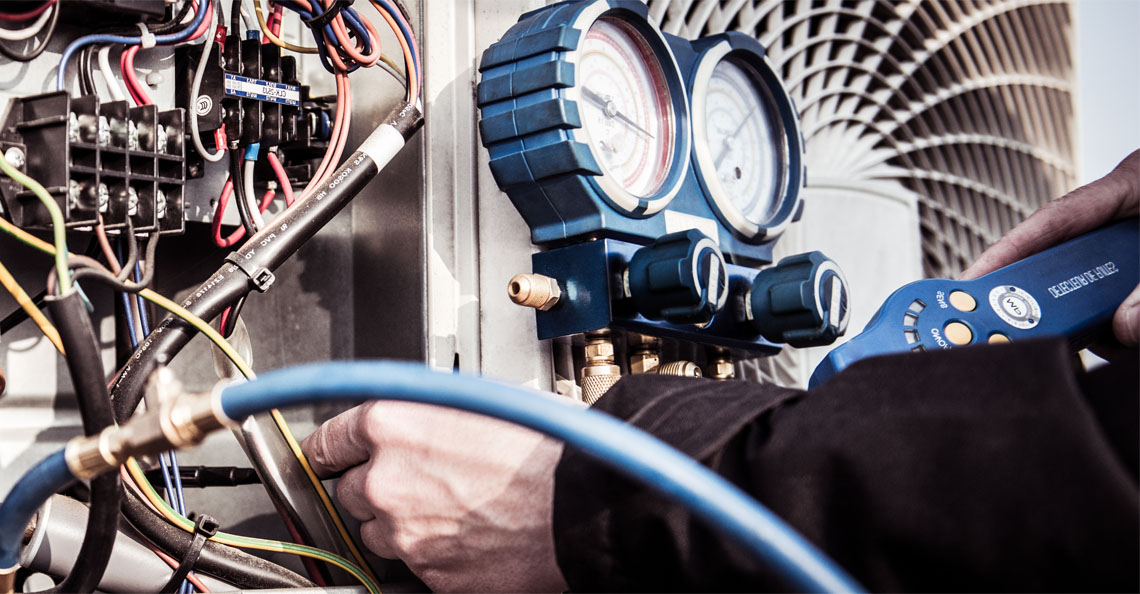
- Jul 5, 2021
- Atul
- Climate Control, Facilities, Servicing
- 0 Comments
The peak of summer is here for the Northern hemisphere, and many site and facilities managers will find their air conditioner running hot as it struggles to cope under maximum load.
An ill-functioning AC may not only leave your environment uncomfortable, but may also be costing you in terms of additional electricity use and/or eventual breakdown costs. Luckily, many of the most common reasons for an air conditioner to overheat are simple to diagnose, however it’s important for the effectiveness of any repair and the future life of the unit that work is undertaken by knowledgeable professionals.
Reasons the unit may be overheating
The unit may have a dirty or blocked coil
If your unit has a dirty coil (either the condenser coil or the evaporator coil) then the air conditioner will not perform to its optimum level, resulting in the air conditioner running hot. The coils are made of tubes and fins. Refrigerant runs through these coils. If the coils are dirty or blocked then the heat transfer will not be adequate and the air conditioner will not only run hot but it may also consume more electrical energy due to higher fan speeds and the compressor running for a longer amount of time. This can be quite expensive. So, leaving this problem unattended can cost you more money.
Cleaning is the best course of action for fixing this, before the coils are irreparably damaged, but using the wrong cleaning solutions or causing mechanical damage could ruin your coil and require a costly replacement, which is why it is advised to seek a professional to undertake this work.
Blocked Filters
The air conditioner has an air filter to keep pollutants and particles from spreading through the air. The upkeep of these is very important for your health, and the health of your air conditioner. If your air filters are blocked or dirty this could result in occupants breathing in polluted air. Blocked filters in your air conditioning system can also lead to your fans and compressor burning more electricity as the blockage will impede the air flow. When replacing filters ensure the correct size and filtration specification is used as well as following the manufacturer’s specified filter installation instructions.
Lower Refrigerant Levels
To run optimally, an air conditioning system needs a certain amount of refrigerant pressure. If your unit is low on refrigerant it will struggle to cool sufficiently. The reason for low refrigerant is often leaks in coils which need proper detection systems and leak fixing. If the refrigerant is added without identifying these problems, then you may end up having the same problem reappearing quickly, and end up requiring costly reworks.
Serck has extensive expertise in industrial air conditioning equipment design and manufacturing, especially in volatile environments, and we have teams of skilled technicians across our global locations to service all your HVAC needs. If we can help with your air conditioning or other heat transfer needs, contact us today.
Learn more with these related case studies:
- Serck Condenser Coils Save Hong Kong’s Famous Kolour Shopping Mall US$60,000 Per Year
- Keeping The Crew Comfortable At ADNOC
- A Collaborative Effort At Strathclyde University To Ensure Project Success For Critical HVAC Equipment




Recent Comments